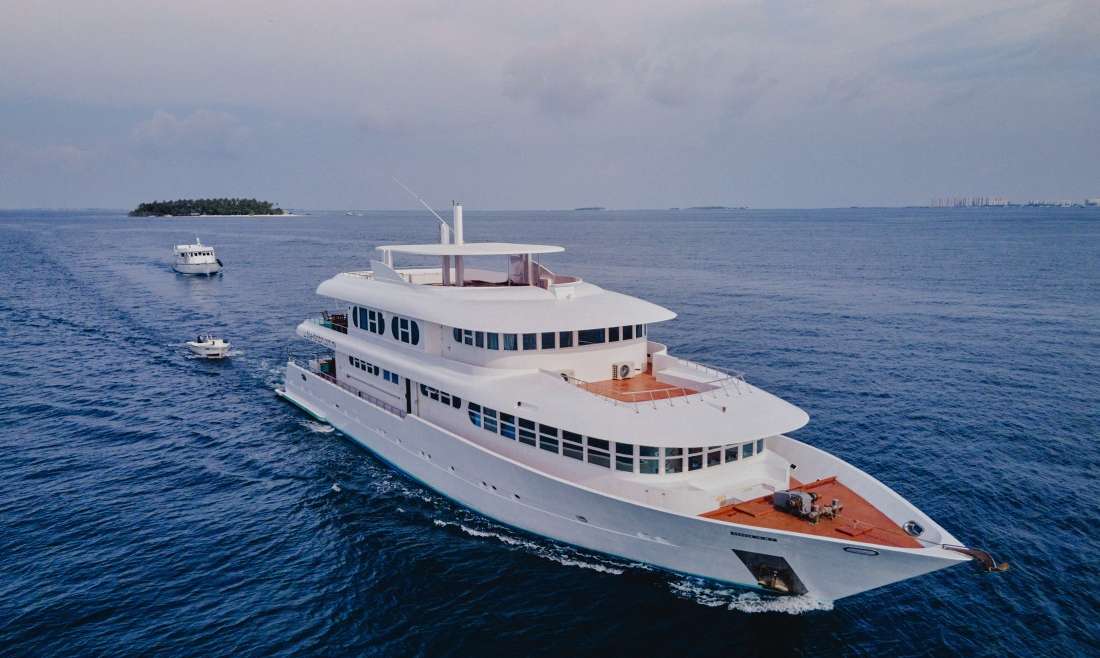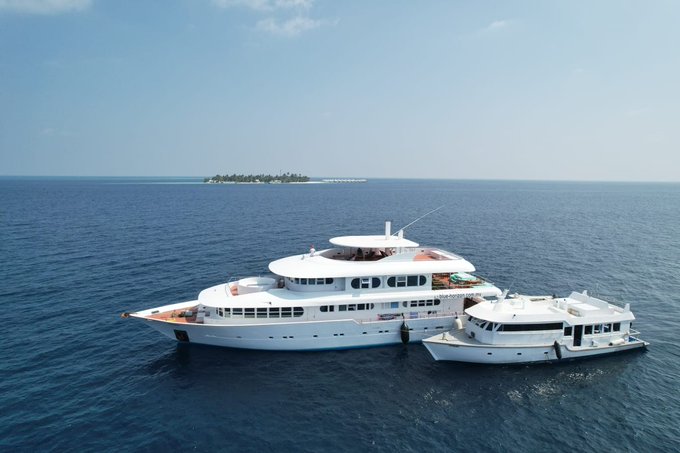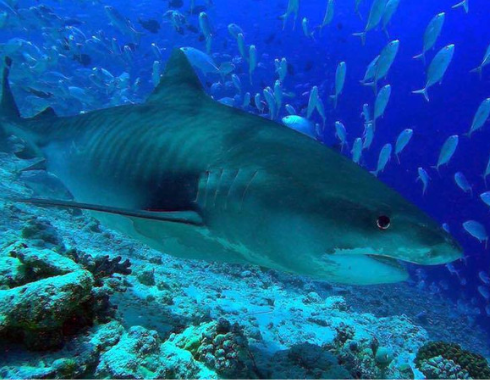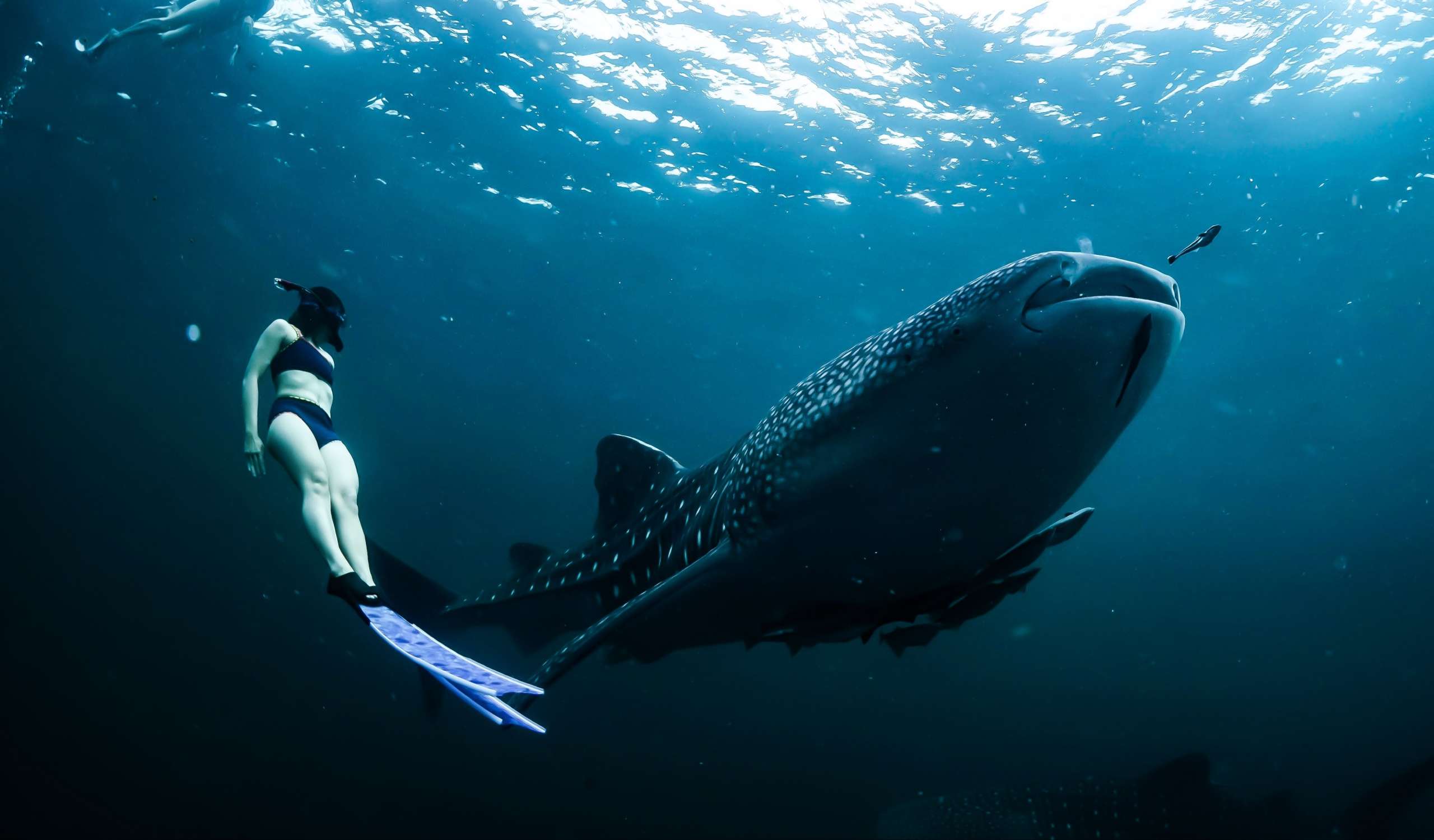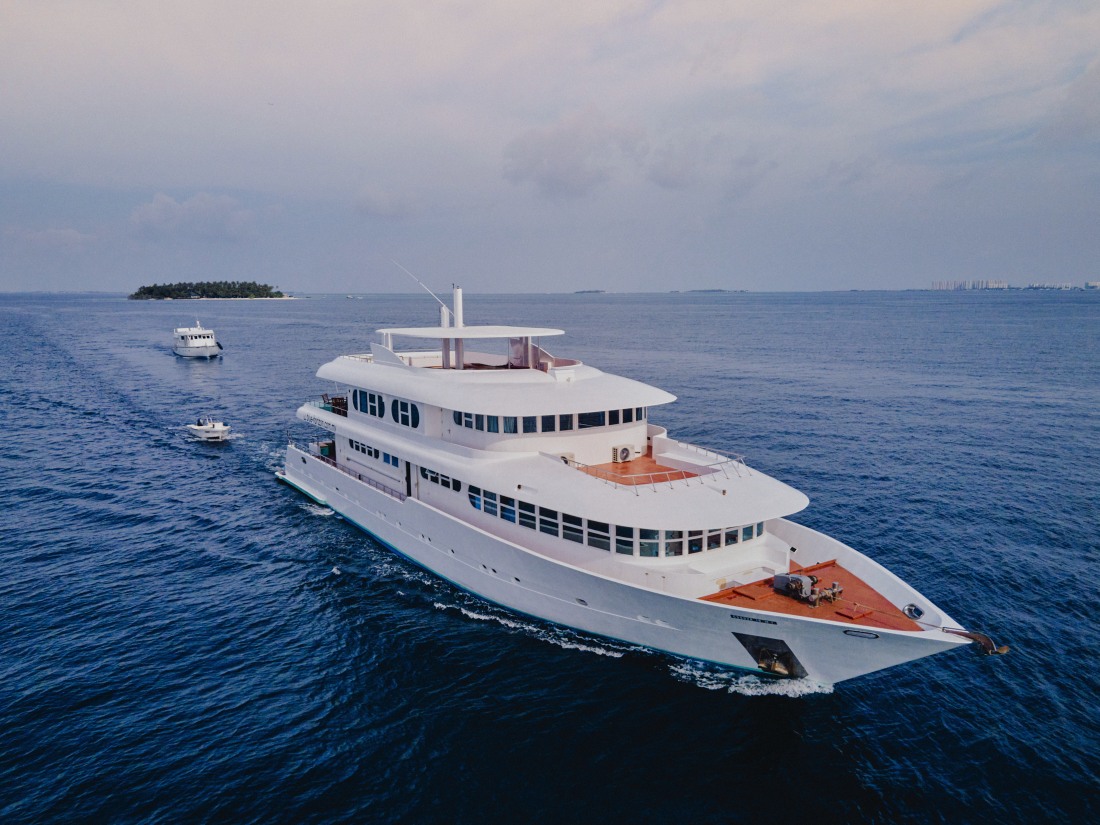The Maldives offers a breathtaking underwater world for freedivers to explore. Crystal-clear waters, vibrant coral reefs, and diverse marine life make it a top destination for this exciting sport. Freediving in the Maldives allows adventurers to experience the ocean’s beauty on a single breath, moving through the water with ease and grace.
Many resorts and dive centers in the Maldives now offer freediving courses and experiences. Beginners can learn the basics of breath-holding and underwater movement, while experienced freedivers can challenge themselves in deeper waters. The warm temperatures and calm seas create ideal conditions for practicing and improving freediving skills.
Freedivers in the Maldives often encounter a wide range of marine life, including colorful fish, sea turtles, and even larger creatures like manta rays and whale sharks. This unique opportunity to swim alongside these animals in their natural habitat draws many people to try freediving in these beautiful islands.
- Freediving in the Maldives offers a unique way to explore underwater beauty on a single breath
- The islands provide ideal conditions for both beginner and experienced freedivers
- Freedivers can encounter diverse marine life, including manta rays and whale sharks and lots of marine creatures.
Freediving in the Maldives
Freediving has deep roots in the Maldives, evolving from traditional fishing practices to a popular modern sport. The islands’ rich marine life and clear waters have long drawn divers seeking to explore underwater realms.
Traditional Freediving Practices
Maldivian islanders have practiced freediving for many years as part of their daily lives. Fishing was a key reason for early diving. Local fishermen dove to catch reef fish and collect shells. They used simple tools like goggles made from turtle shells and weights to help them sink.
Women also took part in freediving. They gathered seashells to make jewelry and crafts. Some divers could stay underwater for several minutes at a time. These skills were passed down through generations.
Emergence of Modern Freediving
In recent decades, freediving in the Maldives has grown into a sport and tourist activity. The Maldives broke the world record for most people freediving at once in 2019. Over 500 people dove together, showing how popular it has become.
Resorts now offer freediving courses and trips. Divers can explore coral reefs, see colorful fish, and swim with larger marine life. The Maldives hosts freediving competitions, drawing athletes from around the world.
Safety standards and gear have improved. Divers use high-tech masks, fins, and diving computers. This lets them go deeper and stay down longer than ever before.
Freediving Maldives Liveaboard
Maldives is 99% sea and the best way to experience the Maldives is to book a liveaboard / yacht as the boat takes you to different remote places which cannot be accessed while staying on a resort or an island.
Blue Horizon offers Scuba Diving, Free diving, Snorkeling cruises in the Maldives. Guests can take either private charter OR can join as individuals.
Understanding Freediving
Freediving is a thrilling sport that lets people explore underwater on a single breath. It needs no heavy gear and can suit many ages. Proper training helps divers stay safe while pushing their limits.
Diving Physiology
The human body has amazing ways to handle deep dives. When underwater, the heart rate slows down. This is called the mammalian dive reflex. Blood flows away from arms and legs to vital organs.
As divers go deeper, their lungs shrink due to water pressure. This causes blood to move into the chest. It helps protect organs from pressure damage.
Freedivers train to hold their breath longer. Some can stay underwater for over 10 minutes. They learn to relax and use oxygen wisely.
Safety in Freediving
Safety is key in freediving. Divers should never dive alone. A trained buddy can watch and help if needed.
Proper training teaches:
- Breathing techniques
- How to equalize ear pressure
- Signs of blackout
Divers learn their limits and how to read their bodies. They plan dives based on skill level and conditions.
Good gear matters too. Wetsuits, masks, and fins should fit well. Some use dive computers to track depth and time.
Regular practice in shallow water builds skills safely. Divers progress slowly to deeper dives as they improve.
Freediving Equipment Essentials
Freediving requires minimal yet specialized gear for optimal performance and safety underwater. The right equipment enhances comfort and efficiency during dives.
Choosing the Right Gear
Freediving masks are key for clear underwater vision. They have a low volume design to reduce air space. This makes equalizing easier at depth.
Fins are crucial for efficient movement. Long blade fins provide powerful propulsion with minimal effort. They help freedivers conserve energy and oxygen.
A wetsuit keeps the body warm in cool waters. It also adds buoyancy. Freedivers often choose thin, flexible suits for unrestricted movement.
A weight belt helps achieve neutral buoyancy. Freedivers adjust weights based on their body composition and wetsuit thickness.
Snorkels designed for freediving are typically J-shaped. This shape reduces drag in the water. Some freedivers prefer diving without a snorkel to further minimize resistance.
Best Dive Sites in the Maldives
The Maldives offers some of the world’s top dive sites. Crystal clear waters, vibrant coral reefs, and diverse marine life make these locations ideal for freedivers. Here are some of the best areas to explore:
Male’ Atoll
Male’ Atoll boasts many excellent dive sites. Maaya Thila stands out as a top spot. This underwater pinnacle starts at 6 meters deep and is packed with marine life.
Freedivers can see colorful coral, schools of fish, and larger creatures like sharks and rays. The site’s caves and overhangs add to its appeal. Currents can be strong, so it’s best for experienced freedivers.
Another great site is Banana Reef. It’s known for its unique shape and abundant fish life. Freedivers can spot Napoleon wrasse, barracuda, and even the occasional manta ray.
Addu Atoll
Addu Atoll, the southernmost atoll in the Maldives, offers unique freediving experiences. The British Loyalty wreck is a highlight. This World War II oil tanker sits at 33 meters deep.
Freedivers can explore the wreck’s exterior, which is covered in soft corals. Schools of fish swarm around the structure. Lucky divers might spot eagle rays or whale sharks in the area.
Gan Inside is another top site in Addu. It features a steep wall drop-off with overhangs and caves. Freedivers can see large pelagic fish and beautiful coral formations.
Near Addu, there’s Fuvahmulah atoll (one atoll island) which features the Tiger Zoo where you can freedive OR scuba with the Tiger shark. This is very popular destination.
Rasdhoo
Rasdhoo Atoll, though small, packs a punch for freedivers. Hammerhead Point is its claim to fame. Early morning dives give the best chance to see schools of hammerhead sharks.
The site has a deep drop-off where these sharks often appear. Even if hammerheads aren’t spotted, the dive is still rewarding. Freedivers can see eagle rays, tuna, and other large fish.
Madivaru Corner is another top site in Rasdhoo. It’s known for its strong currents and big fish action. Freedivers might encounter grey reef sharks, napoleon wrasse, and large schools of snapper.
Marine Life Encounters
The Maldives offers incredible opportunities to see diverse marine life up close while freediving. Swimmers can glide alongside graceful manta rays and explore vibrant coral reefs teeming with colorful fish.
Swimming with Manta Rays
Hanifaru Bay is a world-famous spot to encounter manta rays. These gentle giants gather here to feed on plankton. Freedivers can observe the mantas’ elegant underwater acrobatics.
Manta rays can reach wingspans of up to 23 feet. They often swim in groups, creating mesmerizing formations. The best time to see mantas is from May to November during the southwest monsoon.
Freediving allows for quiet, non-intrusive observation of these creatures in their natural habitat. Swimmers should maintain a respectful distance and avoid touching the rays.
Diverse Coral Reefs
The Maldives boasts over 3,000 coral reefs spread across its 26 atolls. These reefs support a rich ecosystem of marine life.
Common reef inhabitants include:
- Angelfish
- Butterflyfish
- Parrotfish
- Moray eels
- Sea turtles
Freediving allows for extended, peaceful exploration of these underwater gardens. The crystal-clear waters offer excellent visibility, often exceeding 30 meters.
Training for Freediving
Proper training is key to safe and successful freediving. It builds the physical and mental skills needed to dive deeper and stay underwater longer.
Breath-Holding Techniques
Freedivers use special breathing methods to increase their breath-hold time. One common technique is diaphragmatic breathing. This involves breathing deeply into the belly rather than the chest.
Another method is the “breathe-up.” Divers take slow, deep breaths for several minutes before a dive. This helps relax the body and load oxygen into the blood.
CO2 tables are also used in training. These exercises involve holding breath for set times with short rests. This builds CO2 tolerance and extends dive time.
Strength and Conditioning
Physical fitness is crucial for freediving. Divers need strong leg muscles for finning and core strength for streamlining.
Yoga is popular among freedivers. It improves flexibility and breathing control. Many yoga poses also mimic freediving positions.
Swimming laps builds endurance. Underwater laps help divers get used to holding their breath while moving.
Weight training can also help. Squats and lunges build leg power. Planks and sit-ups strengthen the core.
Freedivers often practice in pools before moving to open water. This lets them work on skills in a safe setting.
Conservation Efforts in Freediving
Freediving in the Maldives comes with a responsibility to protect marine life and coral reefs. Divers play a key role in conservation through sustainable practices and raising awareness.
Protecting the Maldives Ecosystem
The Maldives government has taken steps to safeguard its marine ecosystem. In 2024, they introduced new regulations to protect whale sharks, a species often encountered by freedivers.
Freedivers help monitor coral health and fish populations. Their observations provide valuable data for scientists studying climate change impacts on reefs.
Sustainable Freediving Practices
Responsible freedivers follow strict guidelines to protect marine habitats. They avoid touching or disturbing coral and sea life during dives.
Freedivers often participate in underwater cleanups, removing plastic and other debris from the ocean. This helps preserve the pristine conditions of Maldivian waters.
Freediving can raise awareness about ocean conservation. Divers share their underwater experiences, inspiring others to care about marine protection.
Some freedivers work with local communities to promote sustainable fishing practices. This helps maintain fish populations for future generations of divers and fishers alike.
Island Hopping and Exploration
The Maldives offers amazing chances to explore its many islands and atolls. Visitors can learn about local life and culture while seeing the beauty of this island nation up close.
Maldives Island Culture
Island hopping in the Maldives lets travelers see daily life on different islands. Each island has its own charm and customs.
Visitors can try local foods like mas huni (tuna and coconut) and watch traditional bodu beru drumming. Craft markets sell handmade goods like woven mats and carved wooden items.
Many islands have mosques with bright domes. Guests should dress modestly when visiting inhabited islands out of respect for local customs.
Navigating the Atolls
The Maldives has 26 atolls spread over 90,000 square kilometers. Boat trips are the main way to travel between islands.
Popular routes include:
- Male to South Male Atoll
- Baa Atoll to Raa Atoll
- Addu Atoll in the far south
The best time to visit is from November to April during the dry season. Waters are calmer then for easier travel between islands.
Comparing Freediving and Scuba Diving
Freediving and scuba diving offer distinct underwater experiences. Each sport has its own set of equipment, techniques, and accessibility factors that appeal to different types of water enthusiasts.
Experiences and Accessibility
Freediving lets divers explore the ocean with just a breath of air. It gives a sense of freedom and connection to the water. Scuba diving uses tanks to stay underwater longer. This allows divers to see more marine life and explore deeper areas.
Freediving is often quicker to learn. Many people can start after a short course. Scuba diving needs more training. It has more rules and gear to master.
Both sports can be done in the Maldives. The clear waters are great for seeing fish and coral. Freediving spots are often in shallow areas. Scuba sites can be deeper and farther from shore.
Equipment and Techniques
Freediving uses simple gear. Divers wear:
- Mask
- Fins
- Wetsuit (sometimes depending on the conditions)
Scuba divers use more equipment. They need:
- Air tanks
- Buoyancy compensator
- Regulator
- Gauges
Freedivers hold their breath and dive down. They use special breathing methods to stay under longer. Scuba divers breathe from their tanks. They learn to control their buoyancy with their gear.
Freediving is about moving smoothly through the water. Scuba diving lets people stay in one spot to look at things closely. Both sports teach divers to be safe and respect the ocean.
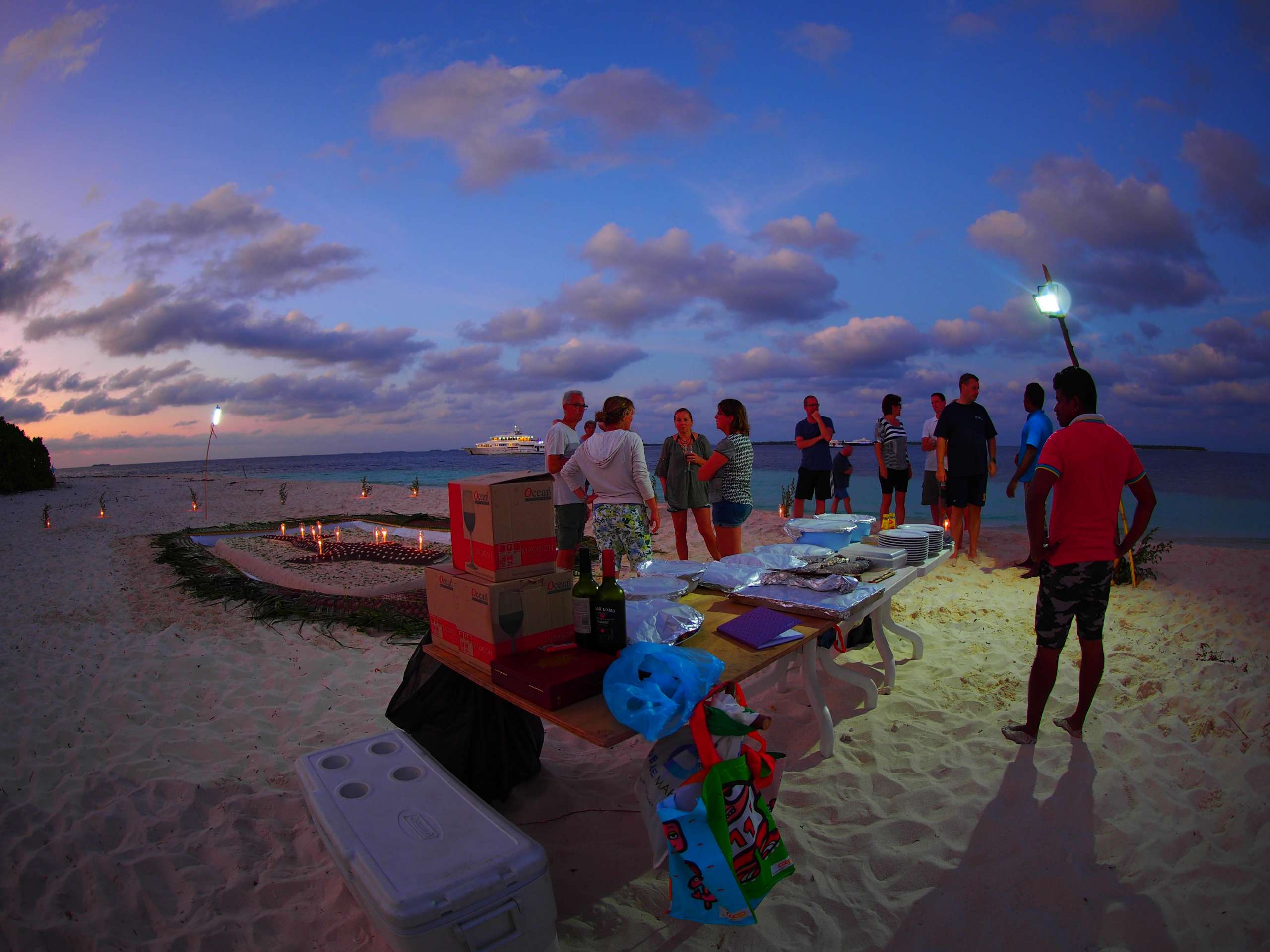
Frequently Asked Questions
Freediving in the Maldives offers unique experiences and challenges. Costs, safety measures, and skill levels are important factors to consider when planning a freediving adventure in this tropical paradise.
What are the typical costs associated with a freediving course in the Maldives?
Freediving courses in the Maldives can range from $300 to $800. The price often depends on the course level and duration. Some resorts offer package deals that include accommodation and meals.
Can beginners participate in freediving activities in the Maldives?
Yes, beginners can enjoy freediving in the Maldives. Many resorts and dive centers offer introductory courses. These courses teach basic techniques and safety procedures in shallow waters.
Are there specialized freediving vacation packages available in the Maldives?
Several resorts and dive operators provide freediving-focused vacation packages. These often include accommodation, meals, and daily freediving sessions. Some packages also offer certification courses for various skill levels.
Is freediving with sharks in the Maldives safe for participants?
Freediving with sharks can be safe when proper precautions are taken. Experienced guides lead these encounters. They choose locations known for gentle shark species and teach divers how to behave around these marine animals.
What measures are in place to ensure safety while freediving in the Maldives?
Safety is a top priority for freediving operators in the Maldives. They enforce buddy systems and provide safety divers. Many use surface markers and flotation devices. Regular equipment checks and adherence to depth limits are standard practices.
Book a Freediving Trip in the Maldives
Blue Horizon Offers Liveaboards and yachts in the Maldives that are best for freediving in the Maldives that takes you to different places which you cannot explore while staying in a resort or an island. Simply click here to check the Availability, Schedule and Pricing.
